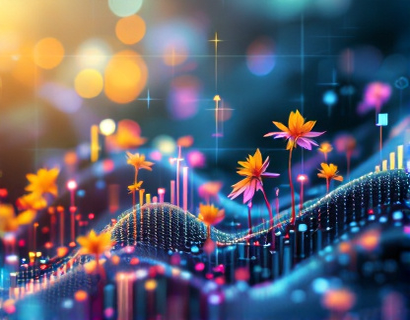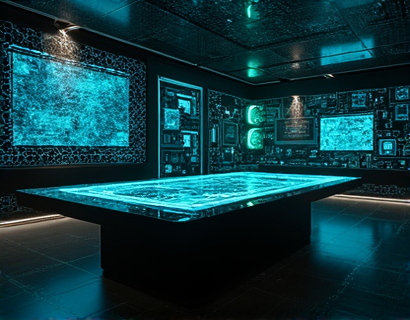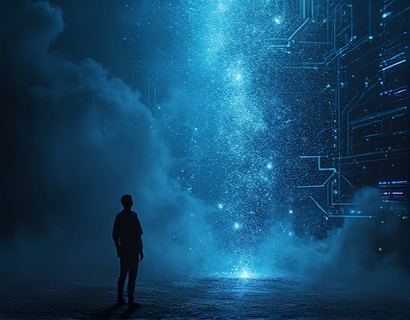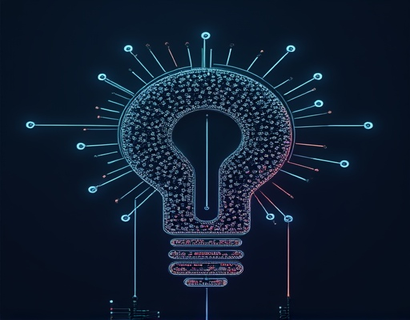AI-Powered Music Composition: Transforming the Creative Process
The integration of artificial intelligence in music composition has ushered in a new era of creativity and innovation. This technological advancement offers musicians and composers tools that not only streamline the composition and production process but also enhance the overall quality and uniqueness of their work. For both seasoned professionals and emerging talents, AI-powered music creation software provides an exciting opportunity to explore new artistic horizons and push the boundaries of traditional music making.
Understanding AI in Music Composition
AI in music composition leverages machine learning algorithms to analyze vast amounts of musical data, identifying patterns and structures that can inform and inspire new compositions. These systems can generate melodies, harmonies, and even entire tracks based on the input provided by the user. The technology can mimic various styles and genres, from classical to electronic, allowing creators to experiment with different sounds and techniques without the need for extensive manual composition.
The core of AI music composition lies in its ability to learn from existing music. By training on extensive datasets, these algorithms can understand the nuances of different musical elements, such as rhythm, melody, and harmony. This knowledge enables the AI to create new content that resonates with listeners while offering fresh perspectives and innovative ideas. For composers, this means a powerful ally in the creative process, capable of generating ideas that might not have been considered otherwise.
Enhancing Creativity with AI Tools
One of the most significant benefits of AI-powered music composition is its ability to enhance creativity. Traditional composition methods can sometimes lead to creative blocks or repetitive patterns. AI tools break these barriers by providing a continuous flow of new ideas and suggestions. For instance, an AI can generate a series of melodic variations based on a initial theme, allowing the composer to explore different directions and select the most compelling ones.
Moreover, AI can assist in overcoming the initial stages of composition where ideas are scarce. By offering a range of potential starting points, these tools help spark inspiration and get the creative juices flowing. This is particularly beneficial for emerging artists who may lack the experience to generate ideas quickly or for professionals looking to reinvigorate their creative process.
Streamlining the Composition Process
AI-powered music composition software significantly streamlines the composition and production workflow. Traditional methods often involve hours of manual work, from sketching out ideas to refining tracks in a digital audio workstation (DAW). With AI, many of these steps can be automated or significantly reduced, allowing composers to focus more on the artistic aspects of their work.
For example, AI can automatically generate a basic track structure, including intro, verse, chorus, and bridge, based on the desired style and mood. This foundational structure can then be refined and expanded upon by the composer. Additionally, AI can assist in arranging instruments, adjusting dynamics, and even adding effects, all of which save time and effort.
Improving Sound Quality
Beyond creativity and efficiency, AI tools also contribute to improving the overall sound quality of music productions. By analyzing professional recordings and understanding the subtleties of sound engineering, AI can suggest optimal settings for instruments and vocals. This includes recommendations for microphone placement, equalization, and compression, ensuring that the final product sounds polished and professional.
Furthermore, AI can help in identifying and correcting common audio issues, such as phase cancellation and frequency masking. These tools can analyze the mix in real-time, providing instant feedback and adjustments to enhance clarity and balance. This level of precision and consistency is often difficult to achieve manually, especially for those new to music production.
Collaboration and Experimentation
AI-powered music composition tools foster a collaborative environment where composers can experiment with different ideas and styles seamlessly. The ability to quickly generate and manipulate musical elements encourages a more exploratory approach to creation. For instance, a composer can try out various chord progressions, melodies, and rhythms in a matter of seconds, allowing for rapid iteration and refinement.
Collaboration is another area where AI shines. Composers can share their projects and ideas with other musicians or producers, who can then contribute using the same AI tools. This shared platform ensures that everyone is working with the same foundational elements, reducing miscommunications and aligning creative visions. It also opens up opportunities for remote collaborations, breaking down geographical barriers and fostering a global music community.
Customization and Personalization
One of the key advantages of AI in music composition is the level of customization it offers. These tools can be tailored to suit the specific needs and preferences of each composer. Whether it's adhering to a particular genre, incorporating specific musical elements, or following a unique style, AI can adapt to create content that aligns with the artist's vision.
Personalization extends to the learning process as well. AI systems can adapt to the user's habits and preferences over time, providing more relevant and useful suggestions. This continuous learning and adaptation ensure that the tools remain relevant and valuable, even as the composer's skills and goals evolve.
Challenges and Considerations
While AI-powered music composition offers numerous benefits, it is essential to acknowledge some challenges and considerations. One common concern is the potential loss of human touch and emotional depth in music. However, AI is not meant to replace human creativity but rather to augment it. The best results come from a collaborative approach where the composer uses AI as a tool to enhance their own ideas and expressions.
Another consideration is the quality and diversity of the training data used by AI algorithms. The more varied and high-quality the data, the better the AI's output. It is crucial for developers to continuously update and expand these datasets to ensure that the tools remain versatile and effective across different musical styles and genres.
Future Prospects
The future of AI in music composition is promising, with ongoing advancements likely to further enhance the capabilities of these tools. As machine learning algorithms become more sophisticated, we can expect even more nuanced and human-like compositions. The integration of natural language processing (NLP) could allow composers to describe their ideas in plain language, with the AI translating these descriptions into musical elements.
Additionally, the rise of virtual and augmented reality (VR/AR) in music creation opens new avenues for immersive and interactive compositions. AI can play a pivotal role in generating dynamic soundscapes that respond to the user's environment and actions, creating a more engaging and personalized musical experience.
Conclusion
AI-powered music composition is revolutionizing the way musicians and composers create and produce music. By streamlining the creative process, enhancing creativity, and improving sound quality, these tools offer unparalleled opportunities for artistic expression. Whether you are a seasoned professional or just starting your musical journey, embracing AI in your composition workflow can elevate your artistry and help you achieve new heights of creativity and success.











































